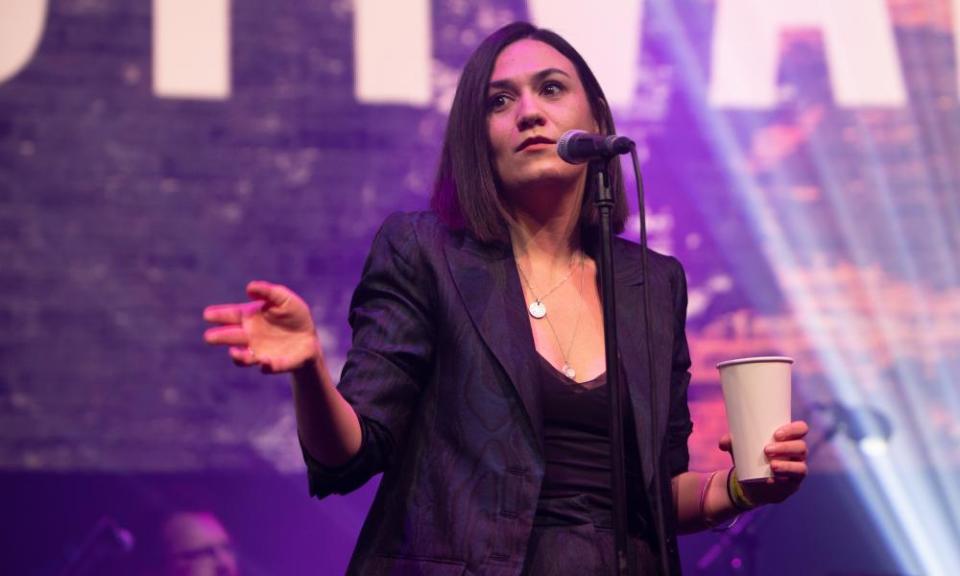MPs warn music streaming platforms against interference in inquiry

A Commons select committee has warned that no one should interfere with its inquiry into the economics of music streaming, after witnesses expressed fear that speaking up could harm their careers.
The Department for Digital, Culture, Media and Sport (DCMS) committee is examining the effect of services including Spotify and Apple Music on the wider music industry, and has already heard evidence from recording artists including Guy Garvey of Elbow, Ed O’Brien of Radiohead, and the singer-songwriter Nadine Shah.
But the committee chair, Julian Knight MP, has warned that further testimony was limited by the fear of retaliation. “We have been told by many different sources that some of the people interested in speaking to us have become reluctant to do so because they fear action may be taken against them if they speak in public,” Knight said.
Related: Guy Garvey says music fans should pay more for streaming services
“I would like to say that we would take a very dim view if we had any evidence of anyone interfering with witnesses to one of our inquiries. No one should suffer any detriment for speaking to a parliamentary committee and anyone deliberately causing harm to one of our witnesses would be in danger of being in contempt of this House.
“This committee will brook no such interference and will not hesitate to name and shame anyone proven to be involved in such activity.”
In November, Nadine Shah told the committee: “Speaking on behalf of many of my friends, my fellow musicians, so many of them are scared to speak out because, myself included, we do not want to lose favour with the streaming platforms, and we do not want to lose favour with the major labels. You called me brave, some have called me stupid, but I am used to it.”
Tom Gray, of Gomez, the founder of the #BrokenRecord campaign who gave evidence at the committee, said the revelation was not a surprise to him. “I don’t think it’s incredible at all. If you go back through all of the evidence about young artists being afraid to come forward or what Nadine Shah said – ‘My friends say I’m stupid’ – nobody was fucking joking.”
He added: “There’s genuine jeopardy here for artists. There’s only one mode of selling music any more and that one mode controls everything in an artist’s life: their remuneration from the recorded works, their exposure to new audiences, their continuing relevance. These aren’t small things for an artist, it’s basically our world.”
Related: Nadine Shah: 'I can't pay the rent on unfair music streaming revenues'
Streaming services hold an enormous amount of power over artists, with the ability to grant or deny promotion through placement in playlists, on homepages and on algorithmic “radios” proving pivotal in the success of new music.
Last month, Spotify made that power explicit, offering artists the ability to artificially promote their music on the company’s artist radio feature, which plays songs similar to a given band. Acts who signed up to the “experiment” would have a selected song added to the artist radio more often – but would be paid a lower royalty rate in exchange. “This a form of payola or sponsored social media post,” said David C Lowery, the singer-songwriter in Camper Van Beethoven. “It is not necessarily illegal but the tracks would need to be labelled.”
Spotify did not reply to requests for comment.

 Yahoo Movies
Yahoo Movies 